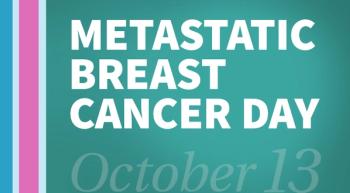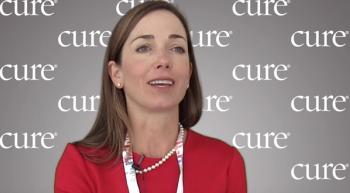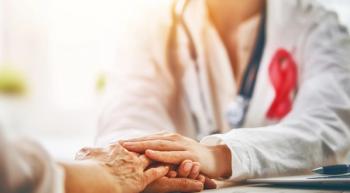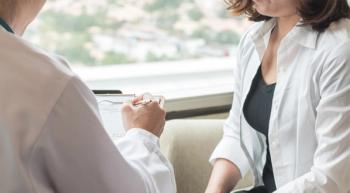
A single question acknowledging someone else's experience can lift the heavy feeling of cancer isolation.

A single question acknowledging someone else's experience can lift the heavy feeling of cancer isolation.

Singer and actress Olivia Newton-John is auctioning off her costumes from the movie “Grease,” along with other clothing and household items, to benefit her cancer hospital in Melbourne, Australia.

After breast cancer, one woman found new purpose and renewed relationships by adopting a special puppy. Now, she fosters others.

Faith may influence a breast cancer recovery by helping a person gain a deeper understanding of their life’s meaning and purpose.

The Metastatic Breast Cancer Alliance (MBCA) launched a campaign to bring awareness of clinical trials to more individuals and encourage them to speak with their health care teams about them.

It isn’t easy living with stage 4 breast cancer when people want to hear uplifting stories about survivors.

After losing numerous relatives to cancer, one survivor is determined to leave her children a legacy of hope.

Having cancer is a ghostly experience, and surviving may feel like a shot in the dark.

"All cancers deserve the attention that breast cancer gets in October. To my brothers and sisters with 'non-pink' cancer and other diseases: it does not mean we don't care."

Could this cough be a sign that cancer has gone to my lungs?

Although breast cancer is commonly diagnosed in the United States, patients are left with unmet needs.

Breast Cancer Awareness month occurs every October. Commonly known as Pinktober, it affects survivors of breast cancer in different ways. In this post, one survivor shares her perspective.

Komen vows to drive breakthroughs for the most-deadly breast cancers and educate those who believe breast cancers are easily treated or always curable.

For Metastatic Breast Cancer Awareness Day on October 13th, 2019, here’s a round-up of fast facts and the latest news and updates in this disease space.

A prolonged and doctor-sanctioned respite from scans gave one woman time to re-evaluate her life with metastatic breast cancer.

It is hard for me to have regrets, especially when it comes to cancer treatment. I am thankful for every step of my journey. At the same time, voicing a few of my regrets after all this time might help others. A cancer patient needs as much information as possible to make the journey work.

A four-time breast cancer survivor and winner of CURE®’s art cover contest shares what drives her passion.

The pink and blue conundrum makes its October reappearance once again.

The safety profile and effectiveness of each therapeutic option are both important considerations to keep in mind when clinicians and patients weigh their breast cancer treatment options, according to one expert.

"My dream is for the day when all cancer patients can have testing to find out what treatment approach might work best for them—so that a patient with a specific genomic profile doesn’t miss an opportunity to get a potentially life-saving treatment when it’s out there."

Two patients with metastatic breast cancer shared their journeys, inspiring fellow patients at Susan G. Komen Greater New York City’s New York Metastatic Breast Cancer Conference.

A patient with breast cancer discovers that going pink isn’t all that bad.

Dr. Patrick I. Borgen discussed estrogen receptor-positive breast cancer and why it is important for patient to understand what this means for their treatment.

Cancer can bring others to love into our lives. This can be costly, but I choose to believe it is worth it.

"Losing your hair is a painless part of cancer treatment, but it can be challenging."